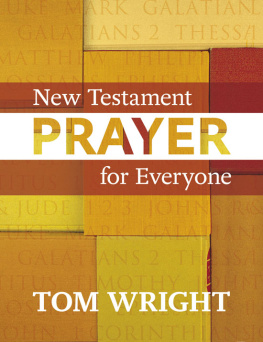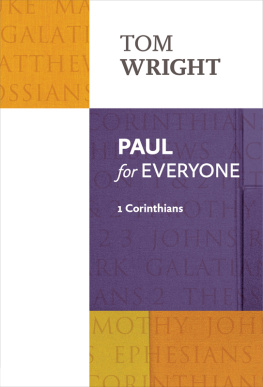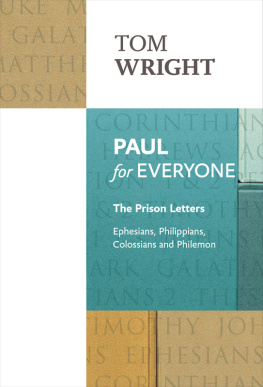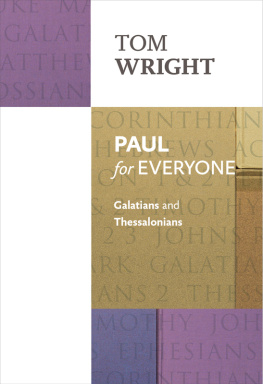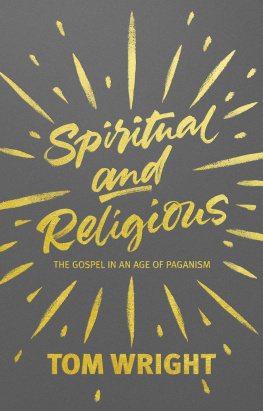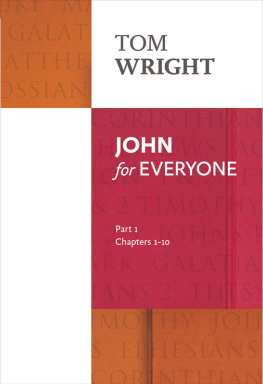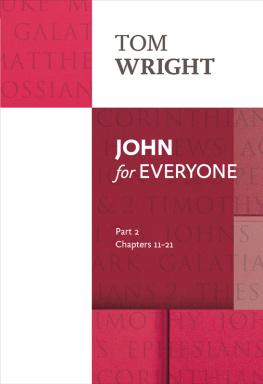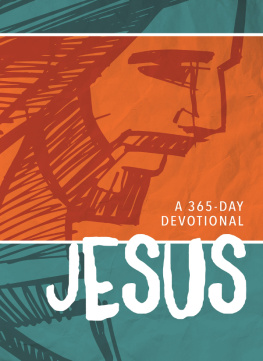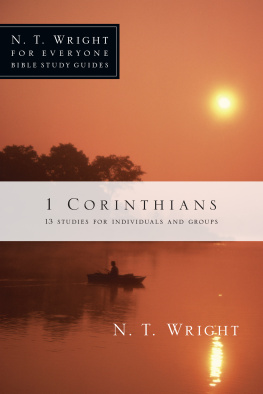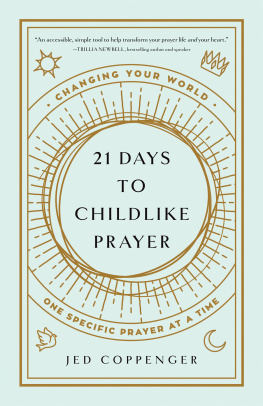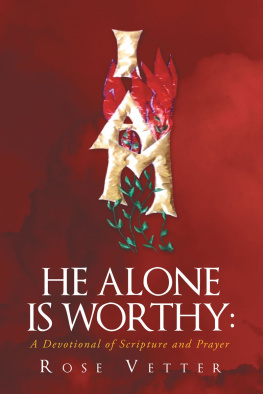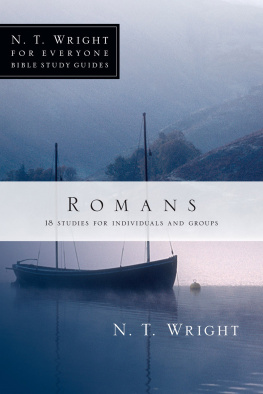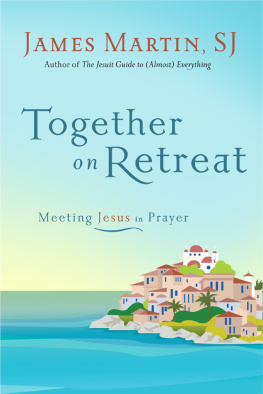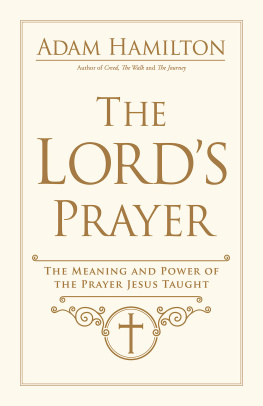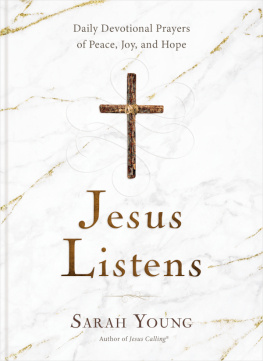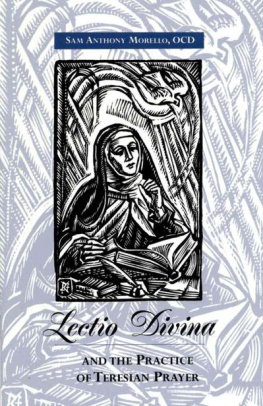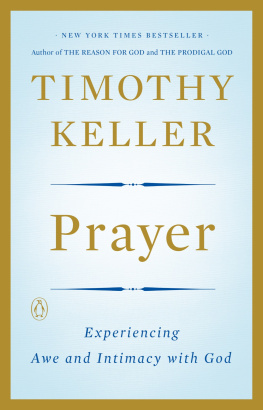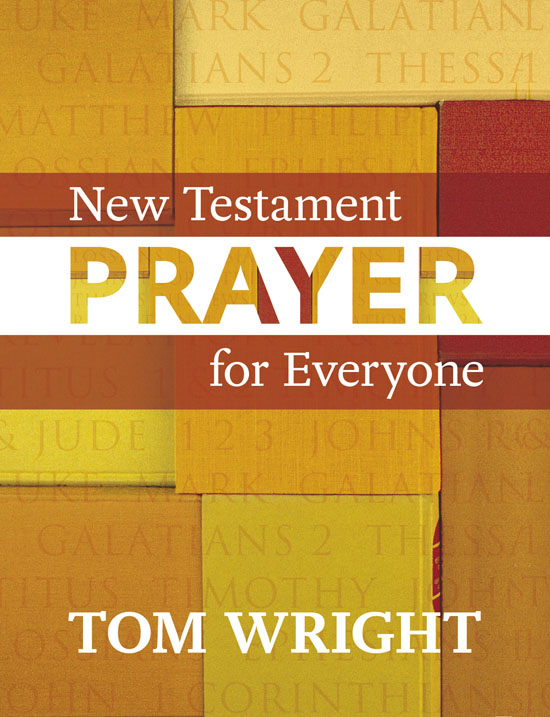First published in Great Britain in 2012
Society for Promoting Christian Knowledge
36 Causton Street
London SW1P 4ST
www.spckpublishing.co.uk
Copyright Nicholas Thomas Wright 2012
All rights reserved. No part of this book may be reproduced or transmitted in any form or by any means, electronic or mechanical, including photocopying, recording, or by any information storage and retrieval system, without permission in writing from the publisher.
SPCK does not necessarily endorse the individual views contained in its publications.
Scripture quotations are taken from The New Testament for Everyone , copyright Nicholas Thomas Wright 2011.
British Library Cataloguing-in-Publication Data
A catalogue record for this book is available from the British Library
ISBN 9780281069064
eBook ISBN 9780281069071
Typeset and eBook by Graphicraft Limited, Hong Kong
CONTENTS
We went into the cathedral for Evensong, and there was the verger looking all round for matches to light the candles. The old matchbox was empty, and someone, it seemed, had taken the spare one that was always kept at the back of the cupboard. Now of course you can still have a service without candles, but in many traditions people value them as a sign of Gods mysterious presence. After all, God himself appeared in a pillar of fire to the Israelites in the desert. The symbolism still makes sense.
But what were we to do? None of us were smokers; not a light between us. Then someone noticed, over on the far side of the building, a faint glow coming from one of the side chapels. One of the candles that had been lit for the midday service was still burning. A trail of molten wax had dripped right down to the floor. But the wick was still alight. Just. We lit two new candles from the small flame, and smiled at their comforting, steady light.
We all know we ought to pray, but almost all of us sometimes find it difficult. The matches seem to have been removed, and we cant light the candle. But help is at hand. There, still glowing in a side chapel, are some of the oldest and best prayers ever prayed. They arent full of long, fancy words. You dont have to be a serious saint to pray them. Thats part of the point. The New Testament where these old prayers are still burning quietly, still sending off a life-giving glow was written by and for very ordinary people: people who sometimes didnt feel that God was very near them at all; people who wondered how they could even begin to talk to him after the mess theyd made of their lives; people like us.
Prayer, you see, is all about the mysterious reality that our world and Gods world are not far apart. Our life and Gods life are not separated by a vast distance. (Yes, sometimes we try to put up walls to stop God getting near us, but he can see through them, and sometimes we hear him knocking gently on the other side.) Our sphere of reality and Gods sphere of reality earth and heaven in biblical language were made to fit together. Prayer is one of the key places where that happens. In fact, some of the biblical prayers, especially the ones in the book of Revelation, seem to be taking place in heaven itself, with us earth-dwellers privileged to eavesdrop at the door.
And of course, at the centre of it all, Jesus himself holds earth and heaven tightly together. Thats why his life was so full of both joy and pain: joy at the new creation that was happening all around him; pain because of the darkness that had infected the old creation and was angrily resisting the breaking-in of the new. It is Jesus own prayers, above all, to which we return again and again: his excited celebration at seeing the power and glory of new creation, his own agony in the garden as he faced the final battle, his solemn and majestic prayer for his followers in the upper room (John 17), and supremely the extraordinary Lords Prayer he gave to his friends to pray, which they and their successors, including ourselves, have been praying ever since. So as Jesus brought earth and heaven together in his own person, and was himself a man of deep, rich and sometimes agonizing prayer, he invites us to stand at the same spot, which we can do because of his achievement on the cross and his gift of his own spirit. And the way to find our balance, and get our bearings, as we stand there is precisely through prayer.
That is how the New Testament not only tells us to pray and invites us to pray. It draws us into prayer. It helps us to make prayer not just a habit, but the deep heartbeat of our lives. There are four foundational Christian practices that shape us as earth-and-heaven people: prayer, reading the Bible, the sacrament of Holy Communion (or Eucharist) and serving the poor. They flow into one another. Jesus led the way and promised to meet us as we do these things. This book brings together two of them, prayer and the Bible, and suggests that one of the important reasons we read the Bible is precisely to get help with our prayers, and that the prayers the Bible itself contains are at the heart of that process.
But prayer isnt just one thing among many. Its like a secret stream, flowing along unseen, refreshing everything else we do and making things happen in ways we cant understand, and often dont even expect, but which prove themselves real time and again. Thats why these prayers, these central early Christian prayers going back in some cases to Jesus himself, are worth learning by heart. That way you can slip into them when youre walking along, or waiting for the bus, or peeling potatoes, or drifting off to sleep. They can become the hidden music which sustains our thinking and feeling, music around which we can then learn to improvise, adding harmonies and new rhythms.
The important thing is to start. Prayer is always a journey into the unknown, a voyage of discovery. Sometimes it will feel strange. We will be tempted to give up. But whether we find it hard or easy, the steady flames of prayer from the New Testament will be there so that we can light our own candles from them. They can be the means through which God himself, through his spirit, answers the prayer we pray in that famous hymn:
Come down, O Love Divine;
seek thou this soul of mine...
and kindle it, thy holy flame bestowing.
Tom Wright
5When you pray, you mustnt be like the play-actors. They love to pray standing in the synagogues and on street corners, so that people will notice them. Im telling you the truth: they have received their reward in full. 6No: when you pray, go into your own room, shut the door, and pray to your father who is there in secret. And your father, who sees in secret, will repay you.
Once, when living in the Middle East, I went out for a walk in the afternoon. On my way home, feeling slightly hungry, I bought a bar of chocolate at a wayside stall. I got back home, went to my room, made a cup of tea, unwrapped the chocolate and broke off a piece to eat it. Fortunately I glanced down at the chocolate before I put it in my mouth. When I did so I dropped it with a shout. It was alive. Inside what looked like a perfectly ordinary bar of chocolate were hundreds of tiny wriggling worms.
Jesus didnt know about chocolate, but he did know about things that looked fine on the outside but were rotten on the inside. Here, at the heart of the Sermon on the Mount, we find his shrewd comments on what it means to live a life that is, so to speak, solid chocolate all the way through.
Jesus doesnt say that outward things dont matter. Giving money to those in need, praying to God day by day, and fasting when its appropriate he assumes that people will continue to do all of these. What matters is learning to do them simply to and for God himself. All the Sermon on the Mount, in fact, is centred on God himself, who easily gets squeezed out of religion if were not careful.

